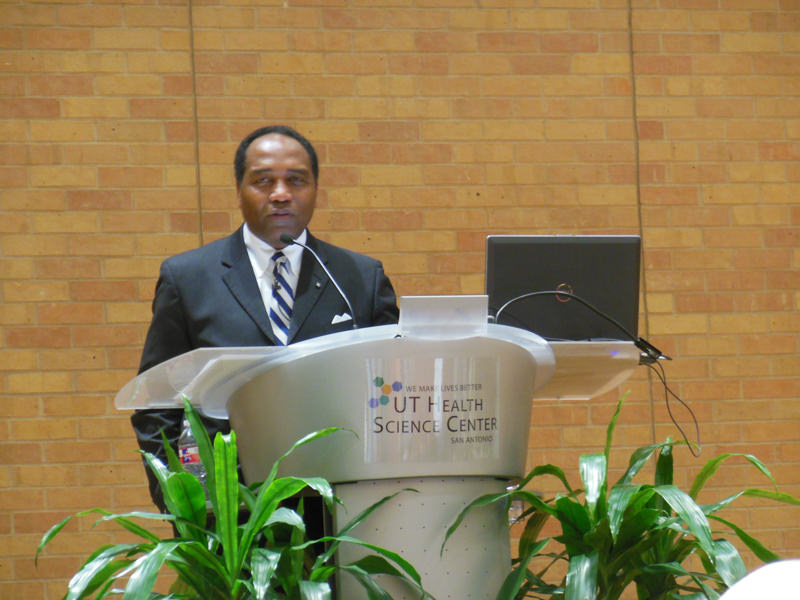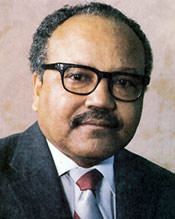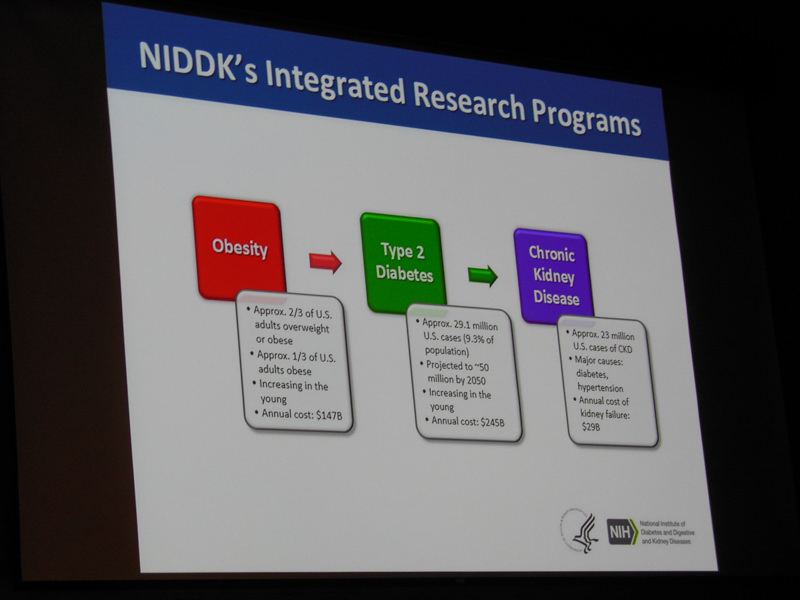Head of NIDDK Speaks about Rise in Prediabetes

“Diabetes is a ticking time bomb in this
country. Every 24 hours there are 4658 new cases,” explained Dr. Griffin Rodgers, director of the National Institute of Diabetes and Digestive Kidney Diseases.
Dr. Rodgers spoke to the UT Health Science Center community on Feb. 10 in honor of the Frank Bryant, Jr., M.D., Memorial Lecture in Medical Ethics. The lecture drew an audience of medical professionals, students and community members from San Antonio.

The lecture coincides with the celebration of Black History Month and is named for Dr. Frank Bryant Jr., a much-loved family physician and community leader in San Antonio until his premature death in 1999. He was among the first African-American students admitted to the University of Texas Medical Branch and to graduate from there. Bryant became an important advocate for the medically underserved living in the East Side neighborhoods of San Antonio.
“Our topic tonight is near and dear to our hearts, and it is especially relevant during Black History Month. Our Center for Medical Humanities & Ethics is very concerned with eliminating barriers – those that prevent people from receiving medical care, and those that discourage people from pursuing health careers,” said Dr. Ruth Berggren, director of the Center for Medical Humanities & Ethics. “Our speaker is a role model to those interested in overcoming barriers themselves or erasing them for others.”

During the lecture, Dr. Rodgers said that common, chronic, costly and consequential diseases including type 2 diabetes, obesity, kidney disease and liver disease disproportionately affect people of color.
“Compared to non-Hispanic white adults, African American adults are 1.5 times more likely to be obese and 70 percent more likely to be diagnosed with diabetes,” Dr. Rodgers said.
Dr. Rodgers also explained that as a community, there is a lot we can do to help the growing number of people with prediabetes.
“There are 86 million people suffering with prediabetes who are extremely likely to develop diabetes within their lifetime,” Dr. Rodgers said.
Dr. Rodgers argued that part of the reason we have seen a rise in chronic illnesses is due to lifestyle changes.
“What we see is a combination of less physical education and the fast availability of high-caloric foods along with the encouragement of sedentary lifestyles like sitting in front of a computer,” Rodgers said.
Dr. Rodgers’ lecture is aptly timed especially with the news that parents of obese children in Puerto Rico could face fines of up to $800 reported by Time Magazine and the $1.3 million grant from the Robert Wood Johnson Foundation to fight Latino childhood obesity.

In addition to the lecture, Dr. Rodgers is credited with discovering the first effective treatment for sickle cell disease, also delivered grand rounds at the University Health System’s Robert B. Green Campus titled “Sickle Cell Anemia: Yesterday, Today, and Tomorrow.”
He also toured the Texas Diabetes Institute.The institute is part of University Health System, with medical specialists from the UT Health Science Center. Located on San Antonio’s west side, TDI includes state-of-the-art research and clinical care for adult and pediatric diabetes patients.
If you missed the lecture, you can watch it online here.
The Center for Medical Humanities & Ethics is working to grow an endowment honoring Dr. Bryant. The endowment will make it possible for us to continue to hold a Bryant Lecture each February during Black History Month. If you or someone you know might be interested in contributing, please email humanities@uthscsa.edu.
